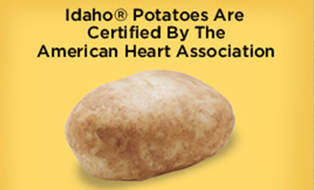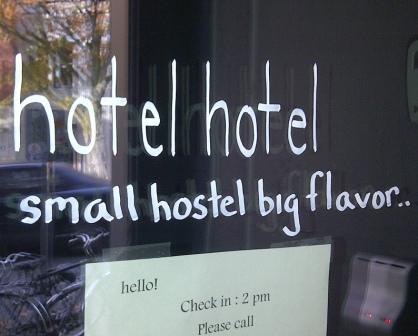Entries in Genericism (21)
Costco Claims "Tiffany" Has Become Generic
Costco advertised some rings in its store as being “Tiffany” rings.
Problem is, Tiffany didn’t make them.
Costco says it wasn’t confusing anyone. It was just describing the setting style, which it says is known as a “Tiffany” setting.
Tiffany’s now suing Costco; Costco is counter-suing Tiffany, saying the “Tiffany” name has become generic.
In other words, Costco is saying that Tiffany’s invaluable brand no longer functions as a trademark; it instead denotes the good itself — a type of setting — the same way that nylon, aspirin, and elevator lost their proprietary meanings and became common words.
KIRO-Radio talked to me about this issue last week.
Do you think “Tiffany” has become generic?
Me? No way. Slam-dunk win for Tiffany.
We’ll see if the court agrees.
Idaho Potatoes? In Turkey?
 An Idaho potato. Grown in Idaho.
An Idaho potato. Grown in Idaho.
Idaho potatoes? Grown in Turkey?
Last week, NPR aired a story about the Idaho Potato Commission’s reaction to a Turkish company’s effort to register IDAHO in connection with agricultural seeds in Turkey.
But not for potatoes, the company insists. They just like the foreign-sounding name.
Idaho apparently doesn’t have much of a reputation in Turkey — yet. It just doesn’t want its brand to go the way of other geographic names that were lost to genericide. Like Brussels with its sprouts or Cheddar and its cheese.
The story quotes Seattle’s Bob Cumbow on Idaho’s chances of protecting its geographical indication.
“[T]he whole idea of having enforceable geographical indications is still in discussion and dispute. The standards are going [to] vary from country to country and for that reason it’s going to be hit or miss where you can enforce these.”
Idaho’s hoping for a hit in Turkey. It’s registered various IDAHO marks in ten countries. Turkey’s not one of them, but I imagine that might soon change.
Associated Press Uses "iPad" to Discuss the Issue of Generic Trademarks
A Xerox ad asking consumers not to use its brand as a generic
substitute for “copy machine.” (STL post on the ad here.)
The Associated Press ran a good story this weekend about the possibility and ramifications of “iPad” becoming a generic synonym for “tablet.”
I was fortunate enough to lend a quote about the struggle famous brand owners face in wanting their brand to become widely adopted — but not so widely adopted that it becomes generic. “Marketing people want the brand name as widespread as possible and trademark lawyers worry … the brand will lose all trademark significance.”
The story does a nice job of explaining why brand owners sometimes are put in the uncomfortable position of trying to persuade consumers not only to purchase their products, but also not to use their brand in a way the company doesn’t like — as Xerox has done with its branded copy machines.
In the end, I’m not too concerned for Apple. It was right to give the public a generic word to refer to the class of goods in which its product competes: tablets. Perhaps for that reason alone, I don’t see anyone referring to an Amazon Fire tablet as an Amazon Fire “iPad” anytime soon. Still, the article does as good a job as I’ve seen explaining why genericide matters to famous brand owners.
Western District Finds Song Title Generic, Dismisses Trademark Claim
The song title “Mom Song” isn’t protectable as a trademark, Western District Judge Ricardo Martinez found last month.
He granted summary judgment in favor of comedian Anita Renfroe, who moved to dismiss comedian Frank Coble’s false designation of origin claim alleging that Ms. Renfroe’s “Momisms Song” about mothers infringed rights in his “Mom Song” about mothers.
The court found: “Mom Song’ is a generic mark that is not protectable. Indeed, virtually any song regarding the broad topic of motherhood could appropriately bear the same mark. The ‘Mom Song’ mark, which simply names the product to which it is attached, does not require ‘the exercise of some imagination … to associate [the] mark with the product,’ and, although the mark is descriptive in the most literal sense, the primary significance of the mark is to describe the type of product (i.e., a song about a mom) rather than its producer. Because the term ‘Mom Song’ ‘embrace[s] an entire class of products’ (i.e., songs about moms), it can receive no trademark protection. Allowing trademark protection for such a generic phrase would place an undue burden on competition, contrary to the goals of trademark law.”
The court also dismissed Mr. Coble’s claim for copyright infringement.
The case cite is Coble v. Renfroe, No. 11-0498, 2012 WL 503860 (W.D. Wash. Feb. 15, 2012) (Martinez, J.).
The New Standard for Generic Trademarks: Seattle's New Hotel Hotel
 Seattle’s new Hotel Hotel. Catchy (though unprotectable) name.
Seattle’s new Hotel Hotel. Catchy (though unprotectable) name.
Seattle’s Fremont neighborhood has new accommodations: Hotel Hotel.
It’s a cute name, if not downright fashionable.
The problem is that if it succeeds, anyone can copy it. That’s because the trademark is generic. (For those nonlawyers out there, a generic trademark denotes the category of good or service, rather than a particular source of goods or services within that category. For that reason, it can’t serve as a trademark or be protected as one, no matter how well known it gets. Think you could protect TELEVISION as a brand of TVs?)
I’ve looked for the generic BEER beer of my youth. Or, should I say, beer that I noticed at the supermarket when I was a kid. Generic beer that actually said BEER in black letters on the can. That’s always epitomized generic trademarks for me.
Until now.
I hope Hotel Hotel is great success. (So far, the reviews are good.) The downside is if it catches on, it’ll have imitators it can do nothing to stop.